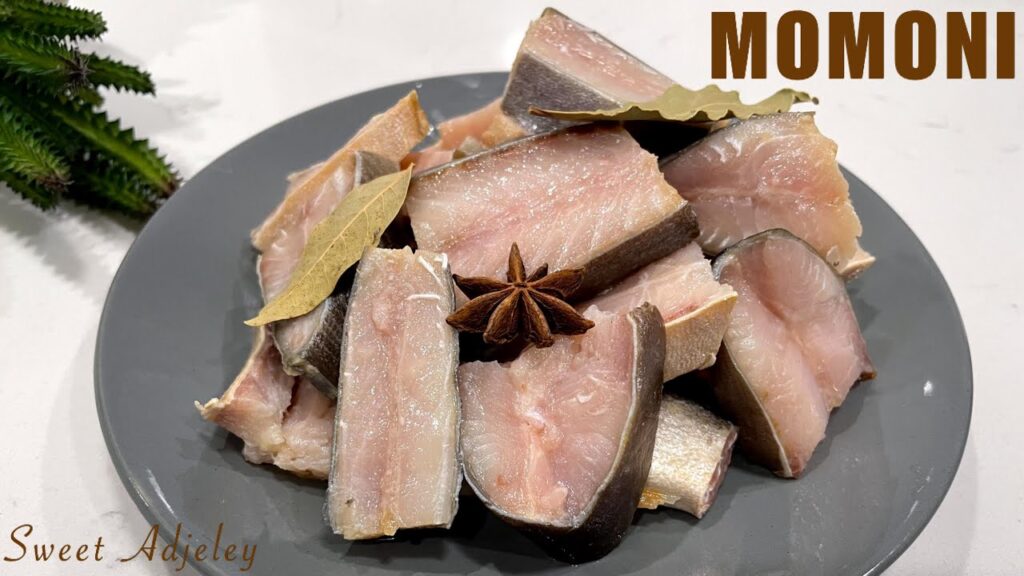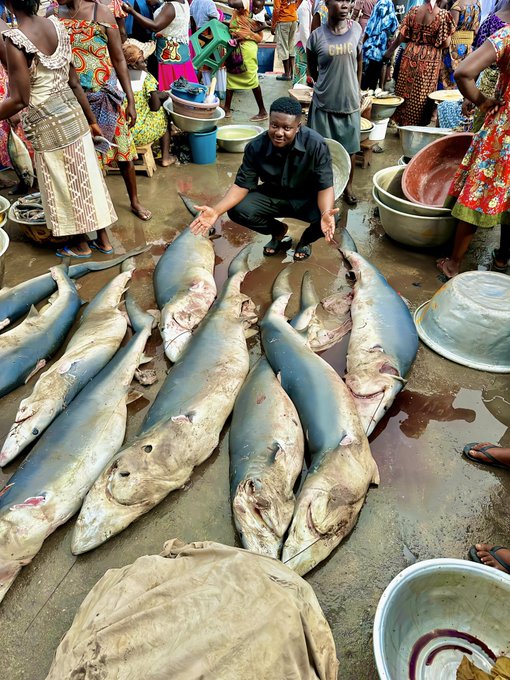The Health Implications of Consuming Ghanaian “Momoni” and “Kako”
Ghanaian cuisine is rich with unique flavors, and two well-loved staples, momoni and kako, play a big role in many dishes. While they are enjoyed by many for their distinctive tastes, these fermented and fried fish products come with health considerations that are worth noting, especially due to their high sodium and mercury content.

How Momoni and Kako Are Made
- Momoni: This is a fermented fish product, typically made from oily fish like mackerel. The fish is allowed to ferment for a few days, after which it is heavily salted and dried under the sun. It develops a strong, pungent smell and flavor, which is why it’s commonly used as an ingredient in soups and stews. Contrary to some misconceptions, momoni is not fried but undergoes a process of fermentation and drying.
- Kako: Kako, on the other hand, is made by frying fish, often shark or catfish. The fish is first salted and dried, and then deep-fried to achieve its signature crispy texture. Kako is popular as a snack or as a complement to various dishes, especially in Ghanaian homes.
Health Risks: Sodium and Mercury Concerns
While these delicacies are cherished, there are significant health concerns associated with their consumption, particularly related to sodium and mercury levels.
High Sodium Levels
Momoni and kako are both heavily salted during their preparation, which makes them high in sodium. Excessive salt consumption is linked to increased risks of hypertension, cardiovascular diseases, and kidney problems. According to dietitians, products like momoni and kako provide little nutritional value and could exacerbate health conditions related to high sodium intake (GBC Ghana).
Mercury in Shark Meat
Sharks, which are often used in making kako, are apex predators, meaning they accumulate high levels of toxins like mercury through biomagnification. Mercury, particularly in the form of methylmercury, poses significant health risks, especially for pregnant women, nursing mothers, and young children. Long-term consumption of shark meat can lead to mercury poisoning, which affects the nervous system and can cause developmental issues in unborn babies (FDA).
Expert Warnings
Health organizations like the World Health Organization (WHO) and the U.S. Food and Drug Administration (FDA) have issued advisories on the dangers of regularly consuming fish with high mercury content, particularly large predatory species like sharks. These advisories specifically target vulnerable groups, urging them to avoid shark meat and similar products to prevent mercury-related health problems.
How to Safeguard Your Health
While it’s understandable to enjoy traditional foods like momoni and kako, being mindful of their health implications can help reduce risks. Here are some recommendations:
- Limit Consumption: Try to reduce how often you eat momoni and kako, especially if you are concerned about sodium or mercury exposure.
- Explore Alternatives: Opt for fish with lower mercury content, such as tilapia, sardines, or herring. These fish are widely available and safer for regular consumption.
- Stay Informed: Follow health advisories from reputable organizations like the WHO and FDA, especially if you’re in a vulnerable group such as pregnant or nursing women.
Conclusion
Both momoni and kako have a cherished place in Ghanaian culinary traditions, but it’s important to recognize their potential health risks. By moderating intake and exploring safer alternatives, you can continue to enjoy these flavors while minimizing harm to your health. Traditional flavors can coexist with healthy eating, as long as there’s awareness and balance.














Post Comment